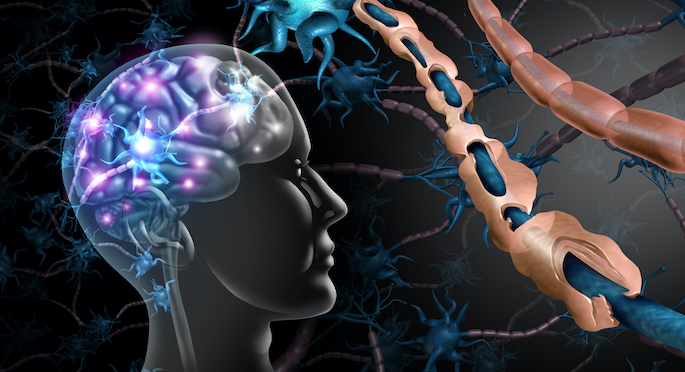
An estimated 2.8 million people around the world have multiple sclerosis (MS), an autoimmune disease in which the immune system damages the brain and spinal cord.
What are the symptoms?
Symptoms include fatigue, vision disturbance, problems with mobility and balance and cognitive dysfunction. Many people who develop MS experience symptoms followed by a period of recovery, but over time the disease can progress to permanent disability.
What are the causes?
The exact causes of MS are unknown. But for decades scientists have suggested a link between MS and Epstein-Barr virus (EBV). This is an infection which, when contracted in childhood, generally doesn’t cause symptoms. However, infection in adolescence can lead to glandular fever, also called the “kissing disease” or infectious mononucleosis (“mono”). A 2022 study confirmed that people with MS have almost always been infected with EBV previously (generally the infection occurs several years before MS emerges). But researchers are still debating exactly how this common virus could cause MS in certain people. Our new research offers some clues.
EBV antibodies and MS mechanism?
A study involving over 700 individuals with multiple sclerosis (MS) and a control group without the disease investigated the role of Epstein-Barr virus (EBV) antibodies. The study found elevated levels of antibodies binding to EBV protein EBNA1 in MS patients, consistent with previous research. Interestingly, these antibodies target a brain protein called alpha crystallin B (Cryab), which protects against inflammation. The presence of Cryab antibodies was observed in up to 23% of MS patients compared to 7% in controls, suggesting a potential link to MS development or progression in a significant proportion of patients. This highlights variations in the disease and the involvement of multiple pathways. Previous studies have also shown EBNA1 antibodies binding to other proteins associated with MS.
What about
T cells?
EBV antibodies alone do not fully explain MS development. T cells, in addition to antibodies, may play a role. T cells can cross-react to EBNA1 and Cryab similarly. Early disease and progression mechanisms remain unclear. Further research aims to understand T cell response to EBV and its impact on the central nervous system. Other targeted proteins by EBV immune responses in MS are also being explored. While current therapies reduce relapse rates, personalized therapies for curing MS may emerge with improved understanding of the disease.